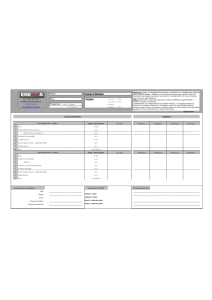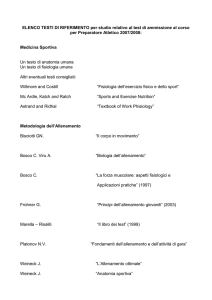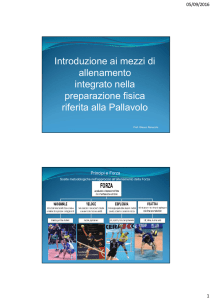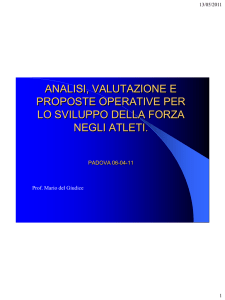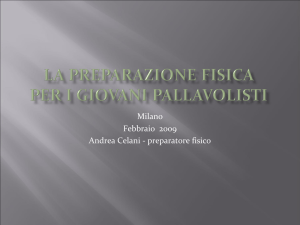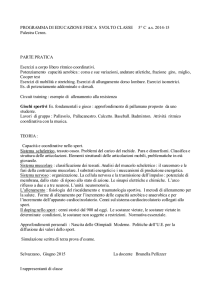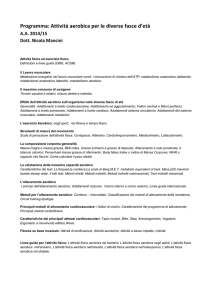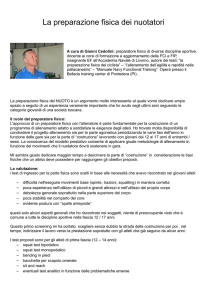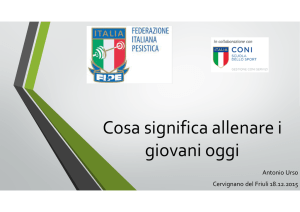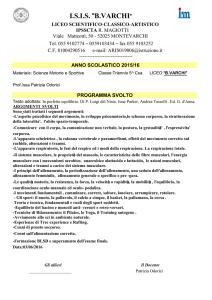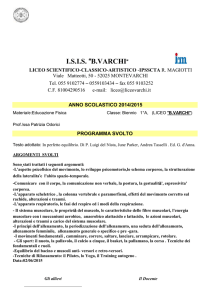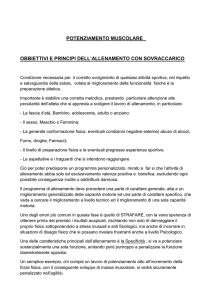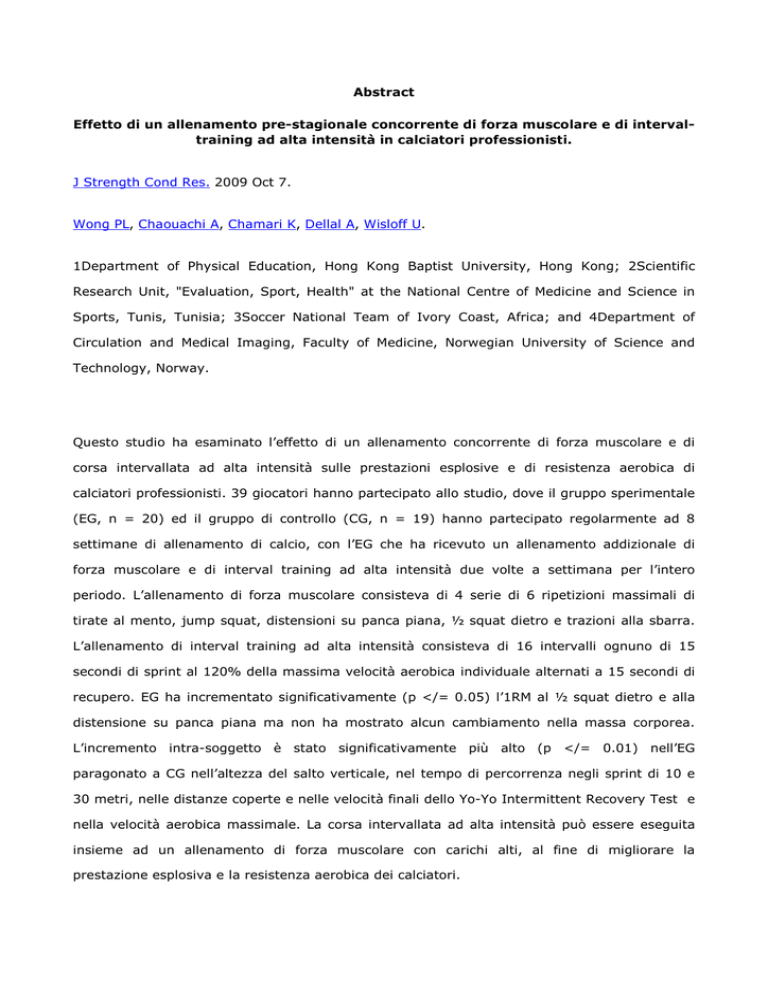
Abstract
Effetto di un allenamento pre-stagionale concorrente di forza muscolare e di intervaltraining ad alta intensità in calciatori professionisti.
J Strength Cond Res. 2009 Oct 7.
Wong PL, Chaouachi A, Chamari K, Dellal A, Wisloff U.
1Department of Physical Education, Hong Kong Baptist University, Hong Kong; 2Scientific
Research Unit, "Evaluation, Sport, Health" at the National Centre of Medicine and Science in
Sports, Tunis, Tunisia; 3Soccer National Team of Ivory Coast, Africa; and 4Department of
Circulation and Medical Imaging, Faculty of Medicine, Norwegian University of Science and
Technology, Norway.
Questo studio ha esaminato l’effetto di un allenamento concorrente di forza muscolare e di
corsa intervallata ad alta intensità sulle prestazioni esplosive e di resistenza aerobica di
calciatori professionisti. 39 giocatori hanno partecipato allo studio, dove il gruppo sperimentale
(EG, n = 20) ed il gruppo di controllo (CG, n = 19) hanno partecipato regolarmente ad 8
settimane di allenamento di calcio, con l’EG che ha ricevuto un allenamento addizionale di
forza muscolare e di interval training ad alta intensità due volte a settimana per l’intero
periodo. L’allenamento di forza muscolare consisteva di 4 serie di 6 ripetizioni massimali di
tirate al mento, jump squat, distensioni su panca piana, ½ squat dietro e trazioni alla sbarra.
L’allenamento di interval training ad alta intensità consisteva di 16 intervalli ognuno di 15
secondi di sprint al 120% della massima velocità aerobica individuale alternati a 15 secondi di
recupero. EG ha incrementato significativamente (p </= 0.05) l’1RM al ½ squat dietro e alla
distensione su panca piana ma non ha mostrato alcun cambiamento nella massa corporea.
L’incremento intra-soggetto è stato significativamente più alto (p </= 0.01) nell’EG
paragonato a CG nell’altezza del salto verticale, nel tempo di percorrenza negli sprint di 10 e
30 metri, nelle distanze coperte e nelle velocità finali dello Yo-Yo Intermittent Recovery Test e
nella velocità aerobica massimale. La corsa intervallata ad alta intensità può essere eseguita
insieme ad un allenamento di forza muscolare con carichi alti, al fine di migliorare la
prestazione esplosiva e la resistenza aerobica dei calciatori.
Effect of Preseason Concurrent Muscular Strength and High-Intensity Interval
Training in Professional Soccer Players.
J Strength Cond Res. 2009 Oct 7.
Wong PL, Chaouachi A, Chamari K, Dellal A, Wisloff U.
1Department of Physical Education, Hong Kong Baptist University, Hong Kong; 2Scientific
Research Unit, "Evaluation, Sport, Health" at the National Centre of Medicine and Science in
Sports, Tunis, Tunisia; 3Soccer National Team of Ivory Coast, Africa; and 4Department of
Circulation and Medical Imaging, Faculty of Medicine, Norwegian University of Science and
Technology, Norway.
This study examined the effect of concurrent muscular strength and high-intensity running
interval
training
on
professional
soccer
players'
explosive
performances
and
aerobic
endurance. Thirty-nine players participated in the study, where both the experimental group
(EG, n = 20) and control group (CG, n = 19) participated in 8 weeks of regular soccer training,
with the EG receiving additional muscular strength and high-intensity interval training twice
per week throughout. Muscular strength training consisted of 4 sets of 6RM (repetition
maximum) of high-pull, jump squat, bench press, back half squat, and chin-up exercises. The
high-intensity interval training consisted of 16 intervals each of 15-second sprints at 120% of
individual maximal aerobic speed interspersed with 15 seconds of rest. EG significantly
increased (p </= 0.05) 1RM back half squat and bench press but showed no changes in body
mass. Within-subject improvement was significantly higher (p </= 0.01) in the EG compared
with the CG for vertical jump height, 10-m and 30-m sprint times, distances covered in the YoYo Intermittent Recovery Test and maximal aerobic speed test, and maximal aerobic speed.
High-intensity interval running can be concurrently performed with high load muscular
strength training to enhance soccer players' explosive performances and aerobic endurance.
Traduzione non autorizzata a cura di Alessandro Ruspantini

